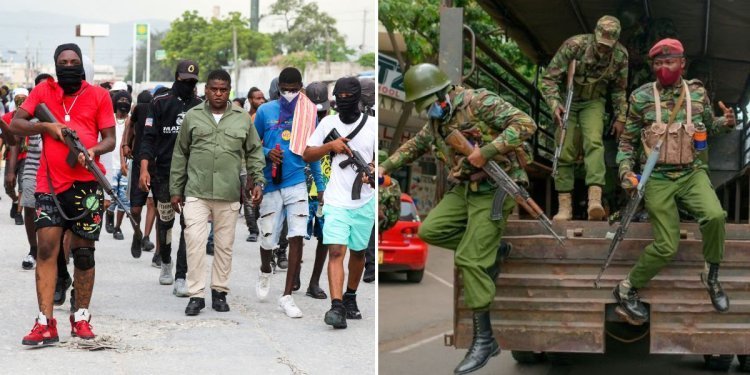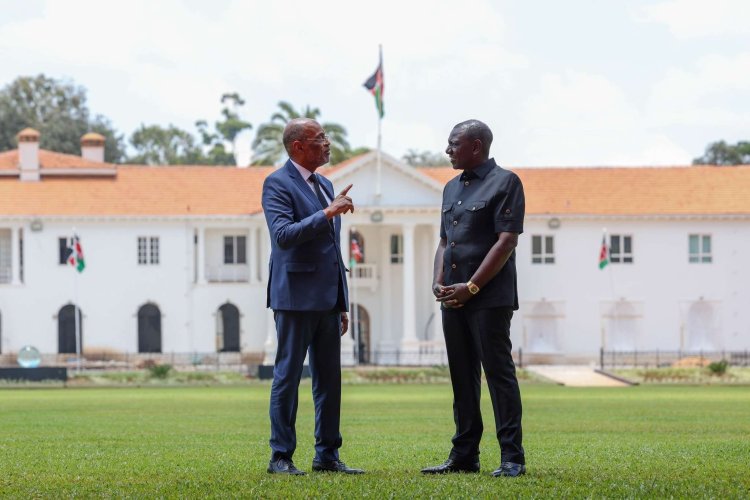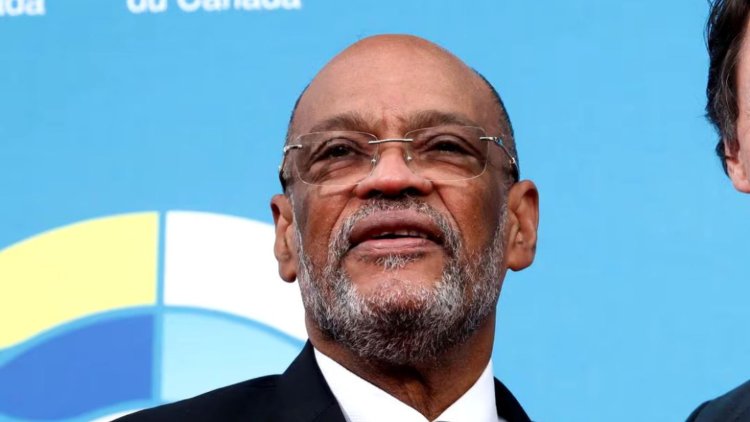Kenya Puts Police Deployment To Haiti On Hold
The move came following an announcement by Prime Minister Ariel Henry that he would resign from his position.

Kenya has put its deployment of 1,000 police officers for a Peace Keeping Mission to Haiti on hold.
The move came following an announcement by Prime Minister Ariel Henry that he would resign from his position.
Foreign Affairs Principal Secretary Korir Sing'oei told the BBC that without a political administration in Haiti, there was no anchor on which the police deployment could rest.
The Kenyan government will now have to wait for a new constitutional authority to be installed before making further decisions on the deployment of officers.

President William Ruto and Prime Minister of Haiti Ariel Henry, at State House, Nairobi on February 29, 2024. /PCS
“There has been a fundamental change in circumstances as a result of the resignation of the PM,” Dr Sing’oei was further quoted by the Nation.
“Without a political administration in Haiti, there is no anchor on which a police deployment can rest, hence the Government (of Kenya) will await the installation of a new constitutional authority in Haiti, before taking further decisions on the matter. Kenya reiterates commitment to providing leadership to the MSS.”
The move means the actual dates for the deployment of the Multinational Security Support (MSS) mission to Haiti, endorsed by the UN Security Council in October last year will have to be dragged further.
The PM handed over his resignation on Monday, according to a statement from Mohammed Irfaan Ali, the president of Guyana and chairman of CARICOM.
"We acknowledge his resignation upon the establishment of a transitional presidential council and naming of an interim prime minister," Irfaan stated.
Following Henry's resignation, there has been significant pressure towards the Kenyan government to reconsider its decision to deploy police officers to Haiti.
Former Defence Cabinet Secretary Eugene Wamalwa called for the country to consider aborting its mission unless there are other interests Kenya seeks to achieve in the same.
“If Haitians rejected Ariel Henry with his so-called reciprocal agreement signed with Kenya and he obliged and resigned, they have rejected the deployment of Kenyan police to their Country, why is the KK regime insisting on the deployment of our officers on the basis of a dubious agreement signed by the deposed Prime Minister whose legitimacy and capacity to contract was questionable?” Wamalwa posed on X.
“The reasonable thing to do in the circumstances is to abort Mission unless there are other interests at play other than National Security interests."
The move by Henry to assume power after President Jovenelle Moise's assassination in 2021 was received bitterly by Haitians, more so, gangs that reigned terror in the Caribbean nation thereafter.
The now-former PM had taken the reins unelected which seemed to have accelerated the perpetual unrest with gangs mushrooming across the nation, all seeking dominance and more influence.
Since then, gangs have been causing havoc in the nation with kidnapping cases rising and endless murders being reported. Rights groups indicate that about 10 people are kidnapped every day in the capital as gangs depend on ransom money to sustain themselves.
As the gangs gained more dominance, a gang under the name G9 led by former police officer Jimmy Chérizier, nicknamed Barbeque, took more prominence in protesting the illegality of the government in place.
All the while, Henry's position as Prime Minister was still intact until a visit to Kenya on February 29, 2024, to seal a deal to launch a United Nations-backed multinational security force to fight gangs in Haiti, with Kenya agreeing to deploy 1,000 of its police officers.
The move sparked more violence, with Barbeque calling for Henry's resignation, and that he stay away from the country, warning of more dire consequences should the PM fail to step down.
"If Ariel Henry does not step down the country will suffer a genocide. If the international community continues to support Henry, they will lead us directly into a civil war," he told media outlets.


 admin
admin 




